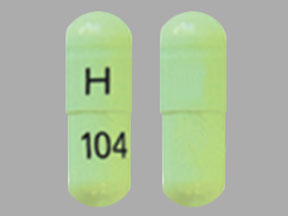Indomethacin Interactions
There are 422 drugs known to interact with indomethacin, along with 11 disease interactions, and 2 alcohol/food interactions. Of the total drug interactions, 98 are major, 307 are moderate, and 17 are minor.
- View all 422 medications that may interact with indomethacin
- View indomethacin alcohol/food interactions (2)
- View indomethacin disease interactions (11)
Most frequently checked interactions
View interaction reports for indomethacin and the medicines listed below.
- Aspirin Low Strength (aspirin)
- Aspirin Low Strength (aspirin)
- Benadryl (diphenhydramine)
- Benadryl (diphenhydramine)
- CoQ10 (ubiquinone)
- CoQ10 (ubiquinone)
- Cymbalta (duloxetine)
- Cymbalta (duloxetine)
- Fish Oil (omega-3 polyunsaturated fatty acids)
- Fish Oil (omega-3 polyunsaturated fatty acids)
- Flexeril (cyclobenzaprine)
- Flexeril (cyclobenzaprine)
- Lipitor (atorvastatin)
- Lipitor (atorvastatin)
- Lyrica (pregabalin)
- Lyrica (pregabalin)
- Metoprolol Succinate ER (metoprolol)
- Metoprolol Succinate ER (metoprolol)
- Tylenol (acetaminophen)
- Tylenol (acetaminophen)
- Vitamin B12 (cyanocobalamin)
- Vitamin B12 (cyanocobalamin)
- Vitamin C (ascorbic acid)
- Vitamin C (ascorbic acid)
- Vitamin D3 (cholecalciferol)
- Vitamin D3 (cholecalciferol)
- Xanax (alprazolam)
- Xanax (alprazolam)
- Zyrtec (cetirizine)
- Zyrtec (cetirizine)
Indomethacin alcohol/food interactions
There are 2 alcohol/food interactions with indomethacin.
Indomethacin disease interactions
There are 11 disease interactions with indomethacin which include:
- asthma
- fluid retention
- GI toxicity
- rash
- renal toxicities
- thrombosis
- CNS effects
- anemia
- hepatotoxicity
- hyperkalemia
- platelet aggregation inhibition
More about indomethacin
- indomethacin consumer information
- Compare alternatives
- Pricing & coupons
- Reviews (211)
- Drug images
- Latest FDA alerts (6)
- Side effects
- Dosage information
- Patient tips
- During pregnancy
- Support group
- Drug class: Nonsteroidal anti-inflammatory drugs
- Breastfeeding
Related treatment guides
Drug Interaction Classification
| Highly clinically significant. Avoid combinations; the risk of the interaction outweighs the benefit. | |
| Moderately clinically significant. Usually avoid combinations; use it only under special circumstances. | |
| Minimally clinically significant. Minimize risk; assess risk and consider an alternative drug, take steps to circumvent the interaction risk and/or institute a monitoring plan. | |
| No interaction information available. |
See also:
Humira
Humira is a tumor necrosis factor blocker used to treat many inflammatory conditions in adults ...
Taltz
Taltz (ixekizumab) is used to treat plaque psoriasis, psoriatic arthritis, and ankylosing ...
Cosentyx
Cosentyx (secukinumab) is used to treat plaque psoriasis, psoriatic arthritis, ankylosing ...
Enbrel
Enbrel is used to treat rheumatoid arthritis, ankylosing spondylitis, and psoriasis. Learn about ...
Remicade
Remicade is used to treat rheumatoid arthritis, psoriatic arthritis, ulcerative colitis and Crohn's ...
Dexamethasone
Dexamethasone is used to treat inflammatory conditions such as allergies, skin conditions ...
Celecoxib
Celecoxib is a nonsteroidal anti-inflammatory drug (NSAID) used to treat pain or inflammation ...
Naproxen
Naproxen is a nonsteroidal anti-inflammatory drug used to treat pain or inflammation caused by ...
Diclofenac
Diclofenac is a nonsteroidal anti-inflammatory drug used to treat pain and inflammation associated ...
Further information
Always consult your healthcare provider to ensure the information displayed on this page applies to your personal circumstances.


